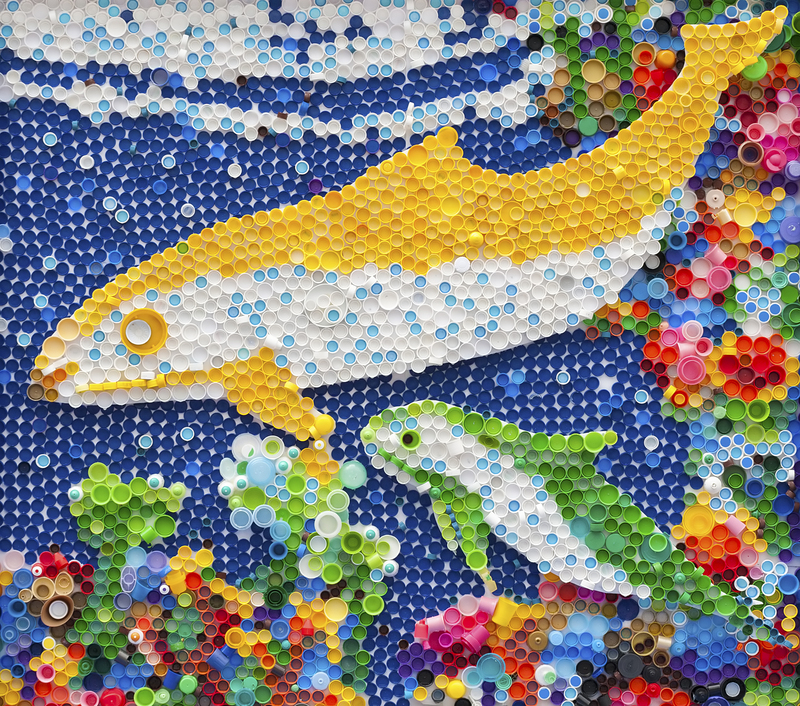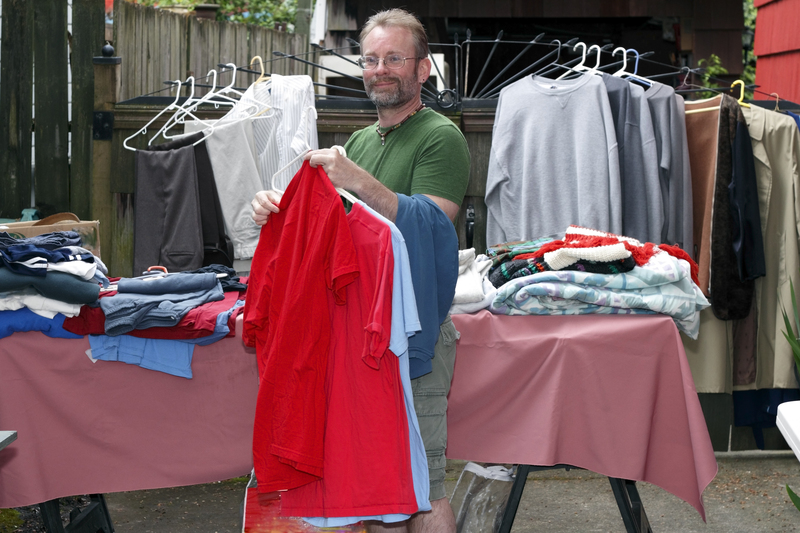Unlock Stress Relief Through the Act of De-Cluttering
In today's fast-paced world, stress often finds its way into our daily lives, impacting our mental health, productivity, and overall well-being. However, there is a transformative and accessible solution right at your fingertips--de-cluttering. By embracing the act of organizing your living and working spaces, you can unlock a pathway to stress relief, increased focus, and a renewed sense of peace. This comprehensive guide will explore how clearing the clutter can contribute to a calmer mind, effective tips for getting started, and why de-cluttering is more than just a household chore--it's a vital self-care ritual.

Understanding the Stress-Clutter Connection
Clutter isn't just about misplaced keys or overflowing closets. It symbolizes unfinished business, constant visual reminders of tasks undone, and a physical manifestation of life's chaos. This can have a surprisingly significant impact on your emotional state. Let's delve into how clutter and stress intertwine:
- Overstimulation: A cluttered environment bombards your senses with excessive stimuli, making it difficult to focus and relax.
- Impaired Productivity: Searching for lost items or navigating around messes eats up time and energy, leading to frustration.
- Feelings of Guilt or Embarrassment: Unkempt spaces may evoke shame or deter you from inviting friends and family over, increasing isolation.
- Anxiety Trigger: Clutter is often a constant reminder of tasks left undone, triggering persistent feelings of anxiety and overwhelm.
Numerous studies affirm the psychological impact of clutter. A revealing study from UCLA's Center on Everyday Lives and Families found a direct link between high home density (clutter) and elevated cortisol (stress hormone) levels, especially among women. Similarly, Princeton University researchers discovered that physical clutter competes for your attention, resulting in decreased performance and increased stress.
The Science Behind Decluttering for Stress Relief
The act of de-cluttering goes beyond aesthetics. It provides a sense of accomplishment, control, and tranquility. Here's why this process is so therapeutic:
Decluttering Creates Calm
- Your brain craves order. Clean, organized spaces signal safety and calmness, allowing you to enter a more restful state of mind.
- Reduced visual distraction helps you focus on essential tasks, enhancing clarity and decision-making.
De-cluttering Promotes Mindfulness
- Sorting through items and evaluating what to keep fosters present-moment awareness--a core tenet of mindfulness practices linked to lower stress and greater happiness.
- The repetitive nature of organizing can be meditative, grounding you in the here and now.
Restores a Sense of Control
- When life feels chaotic, regaining control over your surroundings helps offset feelings of helplessness.
- Each small step taken in tidying up contributes to a larger sense of achievement and capability.
Boosts Self-Esteem and Productivity
- Completing a de-cluttering task, however small, generates a sense of pride and satisfaction.
- Organized spaces streamline your workflow, reducing wasted time and making room for more creative and meaningful activities.
How to Start Your De-Cluttering Journey for Stress Relief
If the mere thought of tackling clutter feels overwhelming, you're not alone. The key is to break the process down into manageable steps and shift your perspective; de-cluttering is not a one-time event--but a lifestyle and ongoing practice.
1. Define Your 'Why'
Begin by reflecting on the reasons you want to clear your space. Are you seeking a more peaceful home? Hoping to reduce anxiety or boost your productivity? Identifying your motivations will keep you inspired during the process.
2. Tackle One Area at a Time
- Start small--think a single drawer, shelf, or surface. Completing a small area quickly delivers a confidence boost, making you more likely to continue.
- Gradually move on to larger spaces as you build momentum.
3. Apply the 'Four-Box Method'
Gather four boxes or bins, and label them: Keep, Donate, Trash, Relocate. As you sort through possessions, place each item in the appropriate box. This system provides structure, making it easier to make decisions and avoid re-cluttering.
4. Set a Timer
Prevent fatigue by allocating a specific time for decluttering--even just 15 to 30 minutes a day. Regular, focused sessions are more effective and less stressful than marathon cleanings.
5. Involve the Household
- If you share your home, encourage everyone to participate. Shared responsibility fosters a sense of teamwork and collective accomplishment.
- Teach kids the habit of regular tidying as a lifelong coping tool for stress.
6. Adopt the One-In, One-Out Rule
For every new item that enters your space, commit to letting go of an old one. This prevents future clutter and encourages thoughtful consumption.
7. Organize As You Go
Once you've removed unnecessary items, arrange what remains in a way that's logical and accessible for your lifestyle. Utilize storage bins, labels, and organizers to maintain order.
Decluttering Techniques for Maximum Stress Relief
While the sorting process is crucial, how you approach de-cluttering plays a vital role in your stress relief results.
Practice Mindful Decluttering
- As you handle each item, ask yourself, "Does this object serve a purpose? Does it bring me joy or help me achieve my goals?"
- Let go of guilt associated with parting from unwanted gifts or inherited items. Remember, your space should reflect your needs and current life.
Tidy by Category, Not Just by Room
- Adopt the Marie Kondo-inspired strategy of decluttering by item type (clothes, books, paperwork, etc.), which can help you clearly see how much you own and streamline decision-making.
Use the "20/20" Rule
- If you're struggling with "what-ifs," try this: If an item can be replaced for under $20 and in less than 20 minutes, it's safe to let it go.
How De-Cluttering Relieves Stress: Real-World Benefits
It may surprise you how quickly your mood can shift once you let go of physical clutter. Here's how unlocking stress relief through decluttering improves your life:
- Better Sleep: Research shows that people with tidy bedrooms experience more restful sleep, thanks to reduced anxiety and visual distractions.
- Enhanced Focus: Clear spaces sharpen your concentration and allow for deeper, more efficient work or relaxation.
- Improved Relationships: A tidy home alleviates household tension and makes it easier to welcome guests, strengthening social connections.
- Greater Self-Compassion: Creating an environment that supports your well-being is a powerful form of self-care. It signals that you value and prioritize your own peace.
De-Cluttering Beyond the Home: Mental and Digital Spaces
Clutter isn't limited to physical objects. Digital and mental clutter affect stress levels just as powerfully:
Addressing Digital Clutter
- Organize your inbox. Unsubscribe from unwanted emails and archive old messages.
- Declutter your desktop and phone apps, keeping only what you use daily.
- Schedule regular digital clean-ups to maintain a streamlined, productive workspace.
Mental De-Cluttering Techniques
- Journaling allows you to clear your mind of persistent worries or to-do lists.
- Meditation and breathing exercises help you process thoughts and release overwhelm.
- Practice "brain dumping" by listing out all your current obligations and sorting them by priority.

Creating a Sustainable, Clutter-Free Lifestyle for Lasting Stress Relief
It's important to remember that clutter will naturally accumulate over time--perfection is not the goal. Instead, focus on sustainable habits that prevent build-up and help you maintain your stress relief gains:
- Schedule weekly or monthly maintenance sessions to reset your spaces.
- Adopt a minimalist mindset by valuing experiences over things.
- Be mindful with new acquisitions. Ask yourself if each new item serves a genuine purpose.
- Regularly donate or recycle items you no longer use or love.
Decluttering is more than a practical task--it's a powerful lifestyle shift that fosters mental clarity, emotional balance, and long-term resilience.
Conclusion: Embrace the Transformative Power of Decluttering for Stress Relief
In summary, unlocking stress relief through the act of de-cluttering is a simple yet deeply impactful practice. By intentionally clearing physical, digital, and mental clutter, you create a harmonious environment that supports relaxation, focus, and personal growth.
Remember: Every item you let go of is a step toward a more peaceful, empowered you. Whether you're seeking calm, productivity, or a fresh start, de-cluttering offers a scientifically backed roadmap to lasting stress relief and greater well-being.
Ready to unlock your own stress-free sanctuary? Begin your de-cluttering journey today--your mind and spirit will thank you!